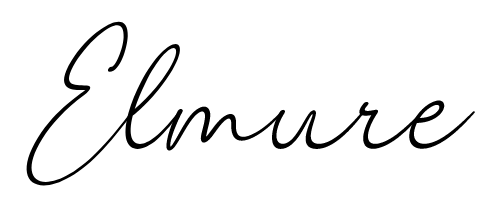Book Recommendations from Jordan Peterson
Jordan Peterson, a clinical psychologist and cultural critic, has become a global voice on responsibility, suffering, and meaning. His reading list reflects a love for literature that confronts darkness, tells deep truths, and uncovers the psyche’s complexities. Whether exploring tyranny, personal responsibility, or mythological archetypes, the books Peterson recommends offer profound insights for those seeking intellectual and spiritual growth. These aren't light reads—they challenge, provoke, and transform. If you're ready to wrestle with the ideas that shaped civilization, this list is for you.
Books Jordan Peterson Recommends

Solzhenitsyn’s monumental work, *The Gulag Archipelago*, is more than a historical document—it's a moral reckoning with the horrors of Soviet totalitarianism. Drawing from personal experience and interviews with fellow prisoners, he exposes the brutality of the prison labor camps and the bureaucratic system that enabled them. Peterson often cites this book to illustrate how ideology can be twisted into evil when responsibility and truth are abandoned. It’s harrowing, philosophical, and essential for understanding how suffering and lies corrupt entire nations. A haunting, transformative read for anyone seeking to understand the depths of human cruelty and courage.

In *Man’s Search for Meaning*, psychiatrist Viktor Frankl recounts his time in Nazi concentration camps and how he survived by holding onto purpose. Frankl's insight—that suffering is bearable when we find meaning—forms the cornerstone of his existential therapy, logotherapy. Peterson regularly refers to this book as a guide for enduring suffering with dignity. It’s short but deeply moving, distilling profound psychological wisdom into a narrative of real human endurance. If you're lost or struggling, this book offers a torch through the darkness.

Dostoevsky’s *Crime and Punishment* is a philosophical thriller that explores morality, guilt, and redemption through the story of Raskolnikov—a young man who believes he can justify murder for a greater good. Peterson draws heavily from this novel when discussing how nihilism and ideological certainty can destroy the soul. The book is a psychological masterpiece, diving deep into the torment of conscience and the potential for transformation. It's not just a story—it's a confrontation with good and evil, internal and external. A foundational read for anyone curious about the roots of moral action and self-deception.

George Orwell’s *1984* remains one of the most chilling depictions of state surveillance, propaganda, and the destruction of truth. Through the story of Winston Smith, Orwell reveals what happens when language is manipulated and individuality is erased. Peterson references *1984* to illustrate how ideological possession and centralized power corrode not just societies, but the human soul. It's a dystopian warning that feels increasingly relevant in the digital age. A must-read for anyone who values freedom of thought and speech.

While Orwell warned of tyranny through fear, Huxley warned of control through pleasure. *Brave New World* imagines a society where people are pacified with entertainment, drugs, and consumerism—giving up freedom for comfort. Peterson often contrasts this book with *1984*, noting that soft tyranny can be just as dangerous as hard oppression. Huxley's critique of a spiritually empty society is eerily prophetic. It's a brilliant, unsettling read for anyone reflecting on technology, conformity, and what makes life meaningful.

A surreal, darkly humorous tale of Satan visiting Soviet Moscow, *The Master and Margarita* is a wild ride through tyranny, love, and the absurd. The novel plays with theology, power, and redemption in ways that fascinate Peterson, who sees it as a brilliant critique of atheistic authoritarianism. It's also a love story and a philosophical exploration of creativity versus censorship. Bulgakov’s prose is rich, layered, and allegorical, demanding rereading. A strange and stunning classic that challenges rationalism with myth and mystery.

*The Horse’s Mouth* follows the chaotic life of a down-and-out painter named Gulley Jimson, who sacrifices everything for his art. Peterson praises the novel for its raw depiction of creative obsession and the costs of pursuing meaning above all else. It’s tragic, funny, and filled with psychological insight into what drives individuals toward passion and madness. Cary explores freedom, discipline, and whether genius justifies suffering. For anyone grappling with the artist’s path or inner conflict, this book offers rare honesty and depth.

Often overshadowed by *Brave New World*, Huxley’s *Island* presents his vision of an ideal society—one rooted in mindfulness, education, and spiritual awakening. It's the antidote to his earlier dystopia, exploring how human flourishing might be possible without tyranny. Peterson values the book for its honest attempt to reconcile science, psychology, and spirituality. While not utopian in the naïve sense, *Island* offers thoughtful critiques of both Western materialism and Eastern mysticism. A deeply contemplative novel for seekers and thinkers alike.

*The Old Man and the Sea* is Hemingway’s stark, poetic meditation on endurance, pride, and dignity in the face of failure. Santiago, the aging fisherman, becomes an archetype of the hero struggling nobly against nature and time. Peterson draws on this story to show how meaning emerges not from victory, but from perseverance. The simplicity of the tale masks a profound depth that speaks to life’s quiet battles. It’s a short read, but one that lingers long after the final page.

A cornerstone of Jungian psychology, *The Great Mother* explores the universal feminine archetype through myth, art, and dreams. Neumann’s work dives into the dual nature of the maternal figure—as nurturing and destructive, creative and chaotic. Peterson frequently references this book when discussing gender, balance, and the symbolic world of the psyche. It’s dense, academic, and deeply rewarding for those interested in the roots of culture and the unconscious. For anyone serious about archetypes, this book is a psychological and symbolic goldmine.
